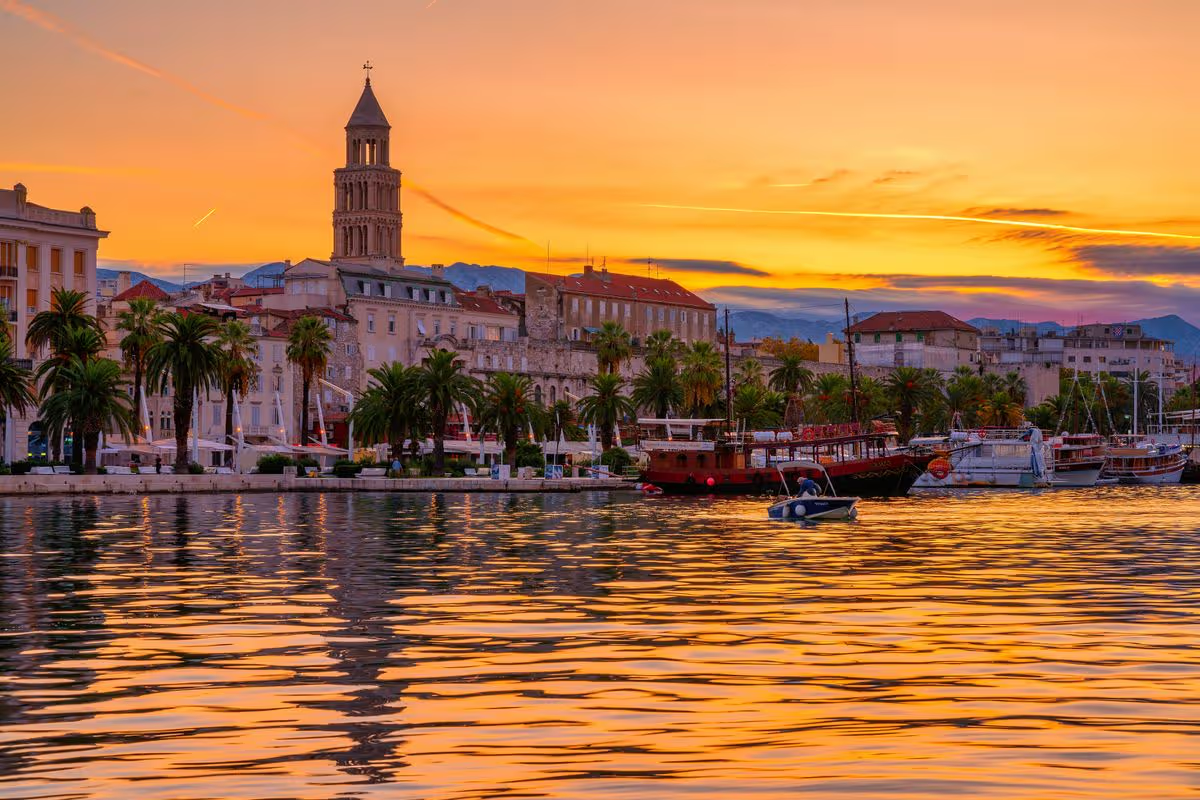The new measure, proposed by Mayor Tomislav Šuta, will restrict some late-night alcohol sales in problematic parts of the city from 8pm to 6am starting this summer
A sun-soaked European city beloved by Brits is introducing a strict alcohol ban.
Split has become the first city in Croatia to ban the sale of alcohol in shops and liquor stores after 8pm, in a direct response to what the mayor describes as “unacceptable” scenes of intoxicated visitors in the historic centre.
The new measure, proposed by Mayor Tomislav Šuta, will restrict late-night alcohol sales in problematic parts of the city from 8pm to 6am starting this summer. The city centre, with its high concentration of clubs, bars, and all-night shops, has been singled out as a particular problem point.
“It is precisely here that situations arise that impair the safety and quality of life of tenants,” Šuta explained, adding that the possibility of extending the rules to other parts of Split has not been ruled out. The restrictions will apply to grocery stores and liquor shops, and not to clubs and restaurants, meaning visitors can still enjoy drinks in licensed venues after 8pm.
READ MORE: I met the King of Benidorm – he knows where to find 87p pints and best beaches
Darijo Šarić, CEO of luxury villa rental agency VIP Holiday Booker, welcomed the ban, seeing the move as part of a broader rebranding of Croatian tourism:
“In previous years, Split may have leaned into a ‘party destination’ image, sometimes encouraging partying among visitors. However, Croatian tourism is now actively rebranding to move away from that reputation, focusing instead on our rich cultural heritage, natural beauty, and family-friendly environment,” Šarić said.
“These measures are designed to encourage responsible drinking rather than to stop the fun.
“Ultimately, it’s all about balance. Everyone wants visitors to Split to have an unforgettable experience, but we also don’t want residents to feel like the city is a 24-hour party zone. By drinking responsibly and respecting local customs, you help us keep Croatia a cherished, safe, and welcoming destination for everyone.”
This isn’t the only recent attempt to curb the effects of overtourism and antisocial behaviour in Croatia.
Last year, Hvar – one of the country’s most famous “party islands” – voted to maintain strict summer noise restrictions, limiting noise to 85 decibels (the equivalent of a noisy restaurant), despite pushback from local businesses.
READ MORE: Beautiful Game of Thrones city brought back from the brink of ‘death by tourism’
Split is not the only place in Croatia where locals are growing tired of tourists. Last year, the Mirror visited Dubrovnik, where work is currently underway to save the 1,400-year-old Old Town from becoming even more of an unbearable, sweaty mess than it was in the summer of 2017, when CNN condemned it as one of 12 global destinations to avoid.
Cruise ship numbers have been cut, and their arrivals have been staggered. Now, passengers must stay for eight hours, meaning the 600,000 who turned up last year spend more despite being 400,000 fewer than seven years ago.
Street vendor numbers in the Old Town are down 70%, while coach arrivals have been halved. Now a camera system counts visitors in and out of the Old Town. The “maximum comfortable limit” (according to a University of Dubrovnik study) of 11,297 a day is 800 higher than last year’s busiest day.







